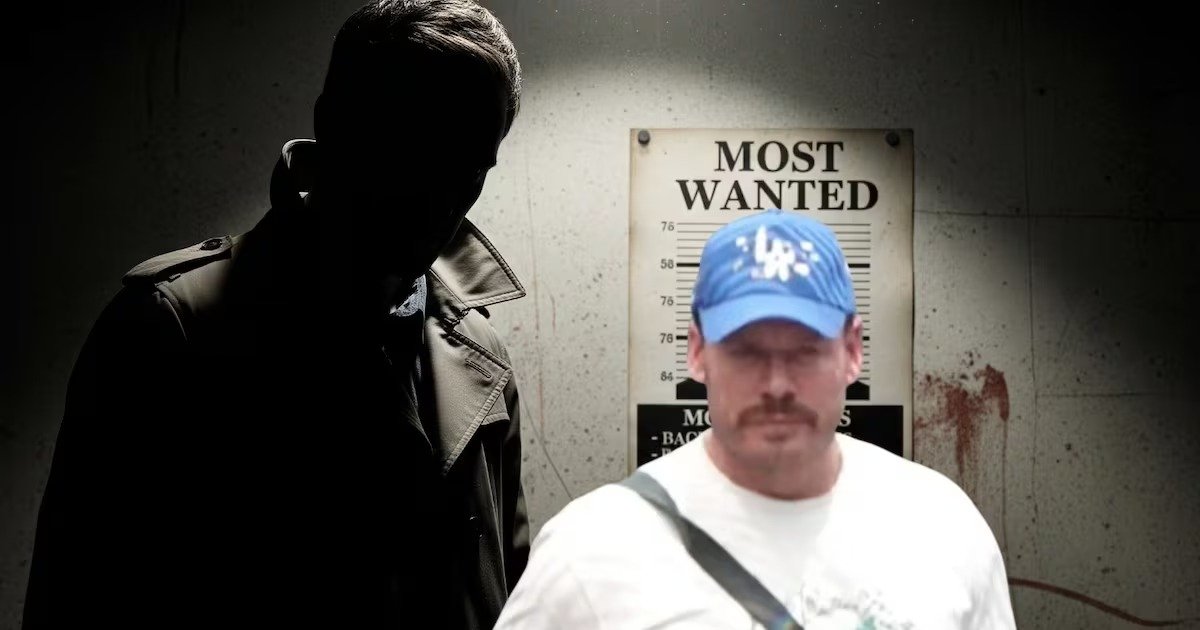In a continent accustomed to crime blending with the jungle, the dust of highways, or the hazy lights of urban drug dealing, the rise of Ryan Wedding stands out as a fierce anomaly, almost a statistical error. He was once a snowboarding prodigy, an Olympic athlete with a career mapped toward sports glory. Today, at 44 years old, he is identified as one of the most violent and sophisticated operators of transcontinental drug trafficking. In the logic of the criminal world—which rewards cunning, not origin—Wedding found his natural place: the summit.
His story is the perfect dissection of moral collapse. A young man from a well-off family in British Columbia, who went from the snowy slopes of Salt Lake City to the dungeons of the U.S. prison system, and from there to total clandestinity, protected by Mexican criminal factions and surrounded by a team recruited to meet his needs: violence, loyalty, money laundering, and pleasure.
The Network: An Ecosystem of Obedience and Blood
The puzzle around Wedding is composed of names that, according to official accusations, fulfill specific roles within a well-oiled machinery greased with dollars, cryptocurrencies, and corpses.
Edgar Vázquez Alvarado, “El General”
Former Mexican security agent, turned—according to accusations—into the fugitive’s protection chief. His function would be decisive: locate enemies, open doors, block operations, and ensure the Canadian’s invisibility in Mexican territory. His figure is the link that connects Wedding with police structures and with the underworld where protection is bought and obstacles are killed.
Miryam Andrea Castillo Moreno, The Wife
A key piece: young, from northern Mexico, accused of money laundering and having participated in violent acts under Wedding’s direct instruction. Her role is not limited to companionship; she appears accused as an active part of the operational muscle.
Daniela Alejandra Acuña Macías, The Girlfriend
Colombian, 23 years old. Located near Morelia. She received—according to accusations—hundreds of thousands of dollars and would have helped the Canadian obtain information about rivals. In Wedding’s logic, there is no border between intimate life and criminal strategy: every bond is a functional gear.
Carmen Yelinet Valoyes, The Intermediary of Pleasure and Death
Colombian, operator of a prostitution network in Mexico City. From her sphere, she would have introduced Wedding to Acuña and would be implicated in one of the most symbolic crimes of the case: the murder of federal witness Jonathan Christopher Acevedo, in Medellín. A millimeter-perfect strike against someone who, years earlier, had been part of the Canadian’s own criminal system.
Deepak Balwant Paradkar, The Lawyer
Not just any lawyer: a facilitator. According to accusations, he would have connected the trafficker with cocaine distributors, managed bribes, and allowed access to privileged communications. In a world where information kills, Paradkar would have been the master key.
Rolan Sokolovski and Gianluca Tiepolo, The Financial Engineering
The Canadian jeweler Sokolovski, identified as the accounting brain, would have laundered millions through his business Diamond Tsar, mixing gold, diamonds, and cryptocurrencies in an impenetrable circuit.
Tiepolo, former member of Italian special forces, would have co-managed high-level assets and properties, including automotive jewels like a Mercedes CLK-GTR valued at 13 million dollars.
Both are the demonstration of something essential in the Wedding case: it is not about a traditional drug trafficker, but a transnational enterprise disguised as a cinematic character.
The Ascent: From Snowy Mountains to the Desert of Crime
It all began as collapses begin: a young talent who felt invincible. After his Olympic participation in 2002, Wedding abandoned university and fell into Vancouver’s nightlife. First as club security; then as a marijuana producer. In 2006, his operations were dismantled. Instead of retiring, he escalated. He entered the cocaine business with initial clumsiness: his first serious operation, monitored by the FBI, ended with him in prison in 2008.
Prison was his postgraduate degree. He learned, connected, perfected. When he returned to Canada after passing through prisons in California and Texas, he came back to the game transformed into something more dangerous: a strategist with grudges and ambitions.
For more than a decade, Wedding has disappeared from the public radar. But the violence, that inevitable footprint, began to outline his silhouette at different points on the map. Accusations place him ordering murders in the United States, Canada, and Latin America, moving tons of cocaine, and using cryptocurrencies to bury millions of dollars under a digital ocean without borders.
Mexico: Sanctuary and Trench
U.S. and Mexican authorities agree on one thing: Wedding operates from Mexico. High-level security figures have publicly acknowledged it. The detention in Jalisco of Andrew Clark, one of his collaborators, indirectly confirms it. Contacts speak of recent meetings in Mexico City; others, of his presence in zones controlled by factions of the former Sinaloa Cartel.
Blond, muscular, over 1.90 meters tall. A visible ghost. A titan who walks among the crowd without anyone wanting to see him.
This is the mark of every great criminal: the psychological immunity of knowing oneself protected by others’ fear.
The Kingdom of the Invisible King
Wedding not only built a criminal network; he built an ecosystem.
Every member is an organ.
Every city, a refuge or a plaza.
Every death, a message.
His story is a tragic arc, a modern parable where an Olympic athlete—a symbol of discipline and excellence—became a machine of violence with continental reach.
Unlike classic drug traffickers, he does not seek popular recognition, nor does he control visible territories, nor does he build mythologies. His empire is silent, technical, surgical. A monster articulated through cryptocurrencies, well-paid professionals, local protection, and brutality as a method.
Meanwhile, the reward for his capture grows. His inner circle tightens. The accusations accumulate.
But Wedding remains free, protected by his alliances, his millions, and a network built with Olympic precision.
The question is not where Ryan Wedding is.
The question is how many countries must bleed before they find him.
Discover more from Riviera Maya News & Events
Subscribe to get the latest posts sent to your email.
